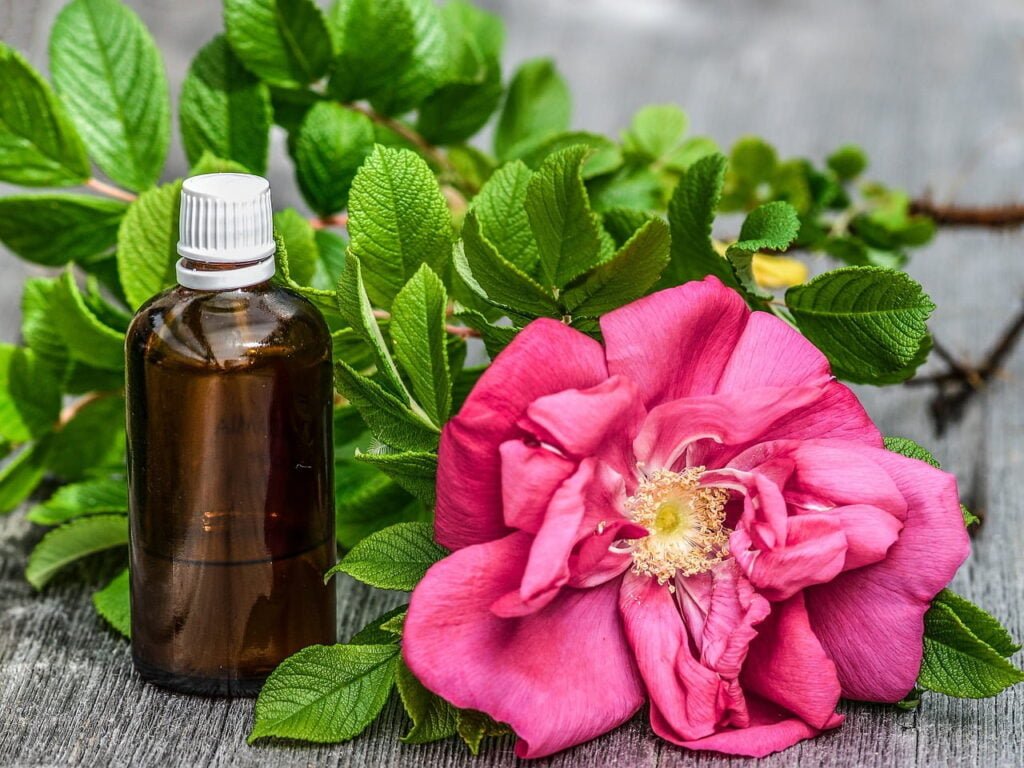
The use of rose in skincare and wellness dates back to ancient times, symbolizing beauty, love, and health. With the myriad of products available today, it’s essential to distinguish between rose water, rose hydrosol, and rose essential oil to leverage their unique benefits fully. This article delves into their differences, benefits, and uses, offering a guide to these cherished rose derivatives.
Table of Contents
- Differences: Rose Water vs. Rose Hydrosol vs. Rose Essential Oil
- Benefits of Rose Hydrosol
- Uses for Rose Essential Oil
- pH of Hydrosols: What You Need to Know
- Rose Hydrosol vs. Rose Water for Hair
- Can Rose Essence Replace Rose Water for Facial Care?
- Safety and Side Effects
- Conclusion
- FAQs
Differences: Rose Water vs. Rose Hydrosol vs. Rose Essential Oil
Rose Water is created by distilling rose petals with steam. The product of this process is two-fold: the essential oil and the water component, which is rose water. It’s renowned for its fragrance and mild astringent properties, making it a popular facial toner.
Rose Hydrosol, also a product of distillation, is often confused with rose water. However, it’s the direct by-product of the steam distillation process used to extract rose essential oil. Packed with all the essence of the rose petal, hydrosols are less concentrated than essential oils but richer than rose water, making them gentler for direct skin application.
Rose Essential Oil is the concentrated essence extracted during the distillation process. It requires a large volume of rose petals to produce a small amount of oil, making it highly concentrated and potent.

Benefits of Rose Hydrosol
Rose hydrosol is cherished for its soothing, hydrating properties and is suitable for all skin types, including sensitive skin. Its anti-inflammatory properties help to calm skin irritations, while its antioxidant elements offer skin protection and rejuvenation.
Uses for Rose Essential Oil
Rose essential oil is used in aromatherapy to reduce stress and anxiety. Its antibacterial and antifungal properties make it beneficial for treating acne and skin infections. Additionally, it’s a popular choice for perfumery and luxury skincare formulations.
pH of Hydrosols: What You Need to Know
The pH of a hydrosol typically ranges from 4 to 6, making them slightly acidic. This pH range helps to maintain the skin’s natural barrier, protecting against bacteria and pollution.
Rose Hydrosol vs. Rose Water for Hair
While both can be beneficial for hair care, rose hydrosol’s richer nutrient profile makes it particularly effective for hydrating and soothing the scalp, promoting healthy hair growth.
Can Rose Essence Replace Rose Water for Facial Care?
Rose essence, typically more concentrated than rose water, can be used in facial care formulations but should be diluted to avoid skin irritation. Rose water remains a gentler option for direct application.
Safety and Side Effects
Rose hydrosol is generally safe for all skin types. However, rose essential oil should be used with caution, diluted properly to avoid potential skin irritation. Always conduct a patch test before using new products.
Conclusion
Understanding the differences between rose water, rose hydrosol, and rose essential oil is crucial for selecting the right product for your skincare and wellness needs. Each offers unique benefits, from the gentle hydration of rose hydrosol to the potent aromatic properties of rose essential oil.
FAQs:
Q: Can I use rose hydrosol daily?
A: Yes, rose hydrosol is gentle enough for daily use.
Q: Is rose essential oil good for acne-prone skin?
A: Yes, when diluted properly, its antibacterial properties can help treat acne.
Q: Can rose water replace my toner?
A: Yes, its mild astringent properties make it a good toner alternative.
Disclaimer:
This article is for informational purposes only and not intended as professional advice. Always consult a healthcare provider or dermatologist for specific concerns.
- Facebook
- Pinterest
- Whatsapp











